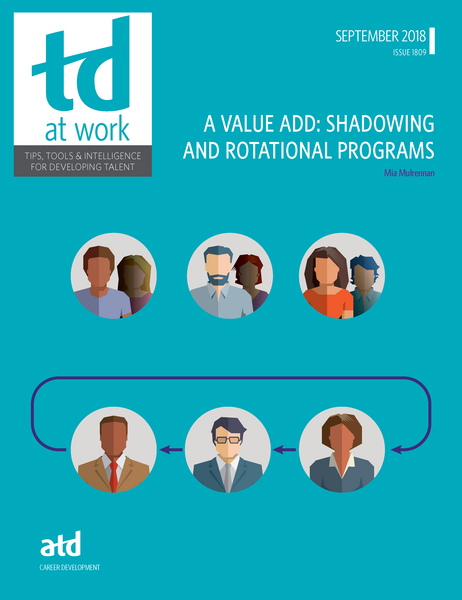TD Magazine Article
Step Right In
Job shadowing and rotational programs are ripe with benefits.
Fri Aug 31 2018

Today's workers have come to expect that their employer—or potential employer—will have development and growth opportunities. Job shadowing and rotational programs are two such programs. While the former enables employees to watch another person in her role and learn from it, rotational programs give workers the opportunity to step into the role of a colleague, completing the person's duties.
Apart from the benefits for the workers—that is, expanding their skills and learning—programs such as rotational jobs are beneficial for organizations.
As Mia Mulrennan writes in "A Value Add: Shadowing and Rotational Programs," having a rotational program in place can help in talent emergencies when an employee is unexpectedly absent from his job. Additional benefits that talent development practitioners can have at their fingertips to help sell the development of such programs to leaders are many. Here are a few:
Strengthens existing programs. Shadowing and rotational programs, according to Mulrennan, help boost and increase interest in other training and talent development programs companies may have in place, such as onboarding and leadership development programs.
"Opens up the floor" for organizational culture and employment brand. Some companies have looked at job shadowing and rotational programs as ones more appropriate for junior staff. But opening up such programs to a diverse range of ages increases knowledge transfer and quality recruiting.
Boosts social media. Having growth opportunities in place naturally leads employees to engage positively on social media, sharing the interesting opportunities they've experienced through job shadowing or rotation.
These tips were adapted from the September 2018 issue of TD at Work. Learn more at www.td.org/TDatWork.
You've Reached ATD Member-only Content
Become an ATD member to continue
Already a member?Sign In

